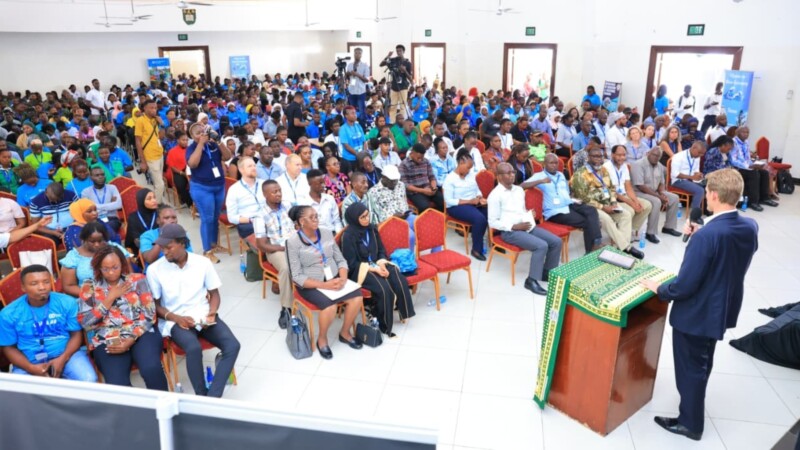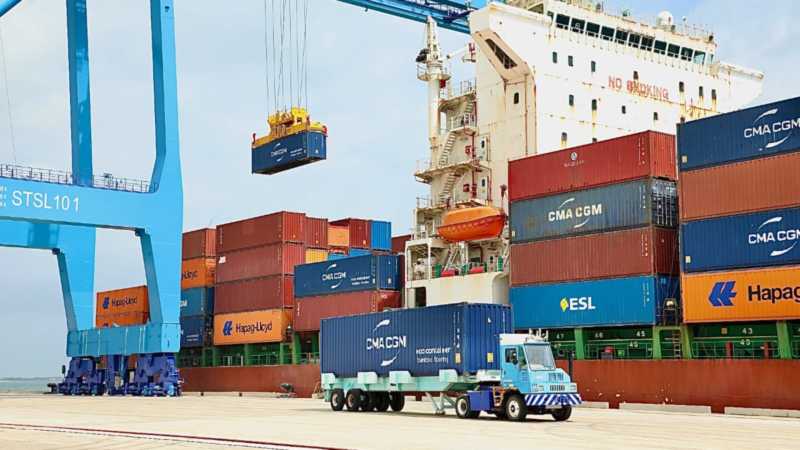By Allan Kai
According to the Kenya Youth Survey Report (2016), 80% of Kenya's population is aged between 18 and 35 years. Furthermore, the World Bank Report (2018) highlights that Kenya leads the region in youth unemployment, standing at 17.3%, compared to 6% in Uganda and Tanzania. This high rate of unemployment has resulted in significant economic and social challenges. Entrepreneurship has been viewed as a potential solution to many of these issues. Researcher Racheal Mugure Mburu notes that "youth entrepreneurship promotes innovation, encouraging young people to find new solutions for the market through experience-based learning."
Recognizing this potential, BlueBiz, in partnership with TechnoServe, hosted a workshop yesterday titled Building Sustainable Youth Enterprises in the Blue Economy focusing on Access to Markets. The workshop was part of the proceedings during the third Blue Economy Innovation and Investment Summit 2024, held at Sarova Whitesands Resort and Spa, Mombasa.
“The coastal region of Kenya is rich in potential. Its resources—ranging from the ocean to its people—are vast. If managed responsibly, they hold the key to unlocking new economic opportunities. Through BlueBiz, we are working to ensure that young people, particularly women and persons with disabilities, lead this transformation,” said Wangari Theuri, Senior Program Manager at BlueBiz.

Despite the promise of the blue economy, young entrepreneurs face numerous challenges, particularly when it comes to accessing markets for their products.
Speaking at the workshop, Yvonne Muyia, a member of the Youth Advisory Committee (YAC) for the BlueBiz program, highlighted some of these barriers. “Starting a business is only half the battle," she said. "The real challenge lies in connecting products and services to the right markets. Youth-led businesses often face obstacles such as limited market information, lack of networks, and inadequate business development services. This is why market access is crucial to building sustainable youth enterprises in the Blue Economy, and it’s precisely where the partnership between YAC and BlueBiz plays a vital role,” added Muyia.
Theuri emphasized the importance of a structured approach to supporting young entrepreneurs through the BlueBiz program. “BlueBiz focuses on four key pillars to drive impact: skills development, access to markets, financial solutions, and leadership enhancement. These pillars address the many challenges young entrepreneurs face, especially in coastal regions where resources are abundant but often underutilized.”
Young people have shown keen interest in areas of the blue economy such as sustainable fishing, aquaculture, ecotourism, and waste management. John Kingara, CEO of Kicar and Representative from the Office of the Senator, Lamu County, remarked, “The access to networks and markets pillar of BlueBiz plays a pivotal role in bridging the gap. Through strategic partnerships, capacity building, and mentorship, BlueBiz ensures that young people are not left behind but are instead at the forefront of economic activities in the Blue Economy.”

(In focus) Abud Jamal Said, Chairman of the Kenya National Chamber of Commerce and Industry (KNCCI) and (his right) John Kingara, CEO of Kicar during the workshop. Photo: Ali Mzee
The workshop also explored potential collaborations between BlueBiz and the Lamu County Government to enhance opportunities for youth in the blue economy. Some of the suggested initiatives included providing young entrepreneurs with broader market access, increasing trade routes, investing in digital platforms, and developing business support services.
“Market access offers young entrepreneurs the chance to create sustainable businesses that can thrive within the Blue Economy. Through partnerships, strategic networks, and improved market access, we can unlock the full potential of youth in our coastal regions,” said Abud Jamal Said, Chairman of the Kenya National Chamber of Commerce and Industry (KNCCI).
Abud praised the efforts of the BlueBiz program and reaffirmed KNCCI's commitment to “continuing to connect young people with established businesses, helping them integrate into supply chains, negotiate better prices for their products, and learn best practices from industry leaders.”











